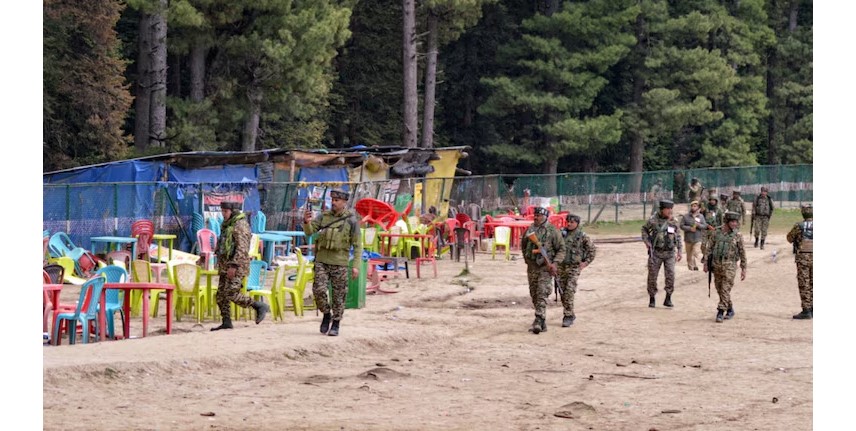Restoring a locally elected govt in Jammu and Kashmir, ensuring equitable development, and respecting cultural distinctiveness are key to winning trust

The Indian constitutional framework was crafted with a conscious emphasis on preserving the country's social, cultural, and religious pluralism. Article 370, which granted special status to the erstwhile state of Jammu and Kashmir, was a product of unique historical negotiations at the time of India’s independence. It allowed Kashmir to maintain its distinct legal and administrative identity while formally acceding to the Indian Union. Similarly, the governance of Waqf properties under dedicated legislation was a reflection of India’s commitment to protecting minority religious institutions under Article 26 of the Constitution. These frameworks were not mere political compromises; they were intended as instruments for sustaining trust in a diverse federation.
In contrast, Goa’s experience offers an illustration of how constitutional integration was approached differently. Goa’s accession in 1961 was followed by the extension of Indian laws with considerable sensitivity to local identity, sustaining an atmosphere of coexistence that continues today.
Contemporary developments (subhead)
Recent national events, the terror attack in Pahalgam, the effective abrogation of Article 370, and the passage of the new Waqf law have reopened debates about how to manage security, legal reform, and religious autonomy within the constitutional order.
The Pahalgam attack represents a brutal assault on civilian life. It is a reminder that, notwithstanding the significant reduction in militancy over the past decade, terror networks continue to seek opportunities to destabilise regions that symbolise India’s unity and diversity. The choice of Pahalgam, a centre for tourism and pilgrimage appears to have been a deliberate attempt to instil fear and disrupt normalcy.
In parallel, the 2019 abrogation of Article 370 marked a fundamental constitutional realignment. The Union government justified the move on grounds of promoting greater integration, economic development, and uniformity of rights across the Union. The Supreme Court, in its 2023 verdict, upheld the legality of the measure. However, the social reception of this change remains a gradual process. The sense of historical grievance among sections of the Kashmiri population has not evaporated, and developments like the recent violence must be seen within the context of the continuing adjustment to the new constitutional reality.
The passing of the new Waqf legislation introduces another dimension. The objective of reforming the Waqf administration to enhance transparency and accountability is understandable in principle. However, apprehensions have arisen regarding the extent of governmental intervention in the management of religious endowments. Particularly in a period where minority insecurities are politically sensitive, legal reforms affecting religious institutions require delicate handling, both in letter and spirit.
Implications for
social cohesion
The cumulative effect of these developments bears significantly upon India’s social cohesion. Terror attacks such as Pahalgam are intended not merely to cause death but to fracture the social trust necessary for a pluralistic society. A strong security response is necessary; however, preserving constitutionalism requires that counterterrorism measures remain proportionate and avoid casting entire communities under suspicion. Upholding the principle of individual culpability is critical to maintaining the legitimacy of the state’s actions.
The post-Article 370 integration process demands a similar balancing act. Legal integration must be accompanied by political and emotional integration. Restoring a locally elected government in Jammu and Kashmir, ensuring equitable development, and respecting cultural distinctiveness are essential to winning trust. Constitutional change achieves stability not by mere proclamation, but by inclusive governance that recognises the dignity and aspirations of all citizens.
The Waqf reforms, while aimed at administrative efficiency, must be perceived as reinforcing rather than undermining minority rights. A perception that religious institutions are being selectively targeted would be corrosive to the spirit of secularism enshrined in the Constitution. Transparent implementation, broad-based consultations with community representatives, and judicial safeguards are measures that can bridge the trust deficit.
In Goa, the history of peaceful coexistence among communities Catholic, Hindu, Muslim underscores how constitutional guarantees coupled with administrative sensitivity can foster enduring social trust. It is a model that could usefully inform policy approaches elsewhere, especially in regions experiencing demographic and political flux.
The path forward
The challenge before India is to reaffirm that legal and political change strengthens, rather than weakens, the constitutional promise of justice, liberty, equality, and fraternity. In dealing with terror threats, the response must be resolute but constitutionally bounded. In managing the consequences of Article 370’s removal, the emphasis should be on inclusive democratic restoration and cultural respect. In implementing Waqf reforms, the guiding principle must be the enhancement of minority rights through better administration, not the diminution of religious autonomy.
Constitutionalism is not merely a matter of formal legality; it is a living practice that requires the continuous balancing of competing values security and liberty, unity and diversity, reform and tradition. In each of these domains, the enduring strength of India’s constitutional order will depend on the state’s capacity to act firmly where needed, and to restrain itself where wisdom demands.
At a time when emotions run high, and narratives risk becoming polarised, it is critical for the citizenry and policymakers alike to anchor their assessments not in transient passions but in a rational fidelity to constitutional principles. Goa’s own evolution, a peaceful synthesis of different faiths and identities under a common legal umbrella stands as a quiet testament to what is achievable when constitutional promises are earnestly upheld.
In confronting violence, navigating reforms, and integrating diverse regions, India must continue to prove that constitutional balance and social cohesion are not contradictory goals, but mutually reinforcing pillars of a just and unified republic.